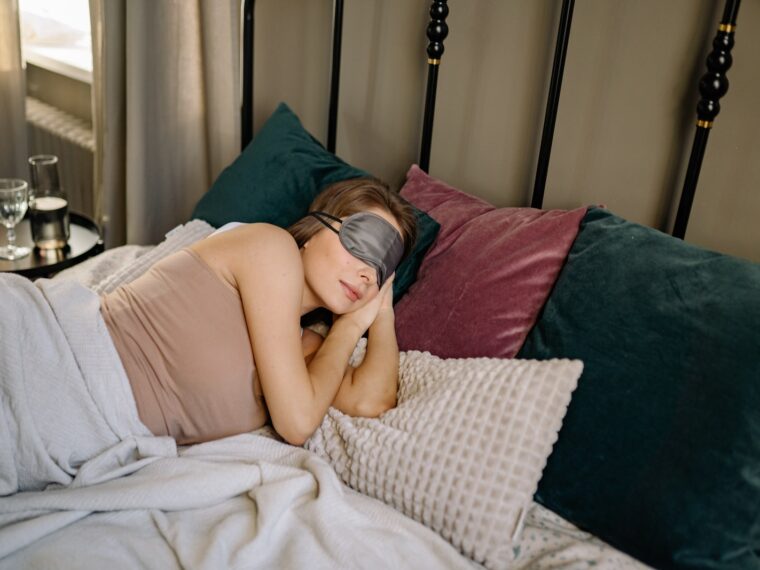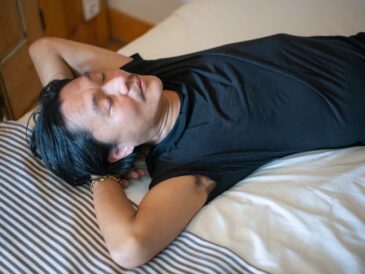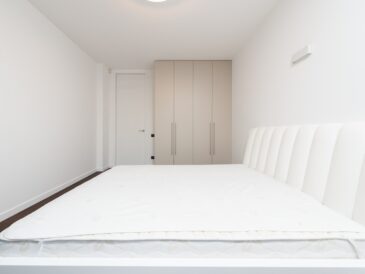Studies demonstrate the significance of good sleep hygiene – or “sleep hygiene” for short – in making an impactful statement about one’s health and its problems, such as obesity, reduced immunity and elevated blood pressure. Insufficient rest has been linked with health conditions like obesity, compromised immune response and high blood pressure.
Avoid caffeine and sugar consumption at least 3 hours before sleeping, and create the ideal bedroom environment with dimmed lights, an app to filter blue light, and perhaps using a sleep mask for maximum effect.
1. Get the right amount of sleep
Most adults require between seven and nine hours of restful, restorative sleep each night, consisting of both REM and non-REM sleep. While REM sleep allows your brain to become active, dreaming can occur and non-REM sleep helps your body build energy for daily tasks.
Make a habit of going to sleep and rising at the same times each day, including weekends. This will help set your internal clock and optimize the quality of your restful slumber. Long naps should be avoided as they may leave you feeling groggy later and interfere with your nightly sleeping cycle.
2. Set the right bedtime
Setting a consistent bedtime will help strengthen the sleep-wake cycle.
Setting yourself a relaxing nighttime routine can also help you unwind before bed. This may involve reading, listening to soothing music or stretching.
Your bedtime routine should ideally start 30 to 2 hours before bedtime to allow yourself plenty of time to unwind without stressing out about waking up late.
3. Create a relaxing environment
At the core of sleep hygiene lies creating an ideal sleeping environment. This includes making sure your mattress and bedding are comfortable, maintaining an ideal temperature in the room and minimizing noise pollution.
Try turning off the TV and playing soothing music to unwind, such as classical pieces from classical composers, which studies have suggested can lower blood pressure and stress levels. Other ways of relaxing could include listening to sleep podcasts or white noise; sensory touches, like running your hands over soft jute rug fibers or snuggling up under cozy, chunky knit blankets are important too!
4. Don’t eat or drink too close to bedtime
An early meal or late snacking may interfere with sleep. Digestion requires energy that should instead be focused on restful restorative rest, making it harder to fall asleep on an uncomfortably full stomach.
Avoid eating acidic foods before bed, such as tomatoes and tomato-based products like sauces and juice, which may trigger heartburn and also interfere with your body’s natural production of melatonin, which promotes sleep.
A light, healthy late-night snack such as nuts or two kiwis may help improve sleep quality. Both foods contain proteins and complex carbohydrates which help stabilize blood sugar levels during sleep.
5. Don’t exercise too close to bedtime
Exercise can help improve sleep quality, but timing your workout properly is key to doing just that. Exercising too close to bedtime may energize your body and make it harder for you to fall asleep.
Instead, opt for low-intensity activities like stretching or yoga that help relax you before sleep. Achieve high-quality rest every night is key to feeling your best – by following these simple tips you could get the best night’s rest possible! *Message and data rates may apply; for more details check with your mobile plan’s terms and conditions.
6. Avoid screen time before bed
Your brain is being exposed to blue light from digital devices that depresses melatonin levels and keeps you alert during the hours before bed. Therefore, it’s wise to avoid screens before sleeping.
Studies have repeatedly shown that screen time before bed can negatively impact one’s restful slumber; however, how people use their phones and other electronic devices varies considerably.
Declare your bedroom a device-free zone, and use red-light reading lamps to help stay on track with your screen time limit. They are widely available at hardware and lighting stores. Plus, red light can help block blue light for an intimate atmosphere in your room!
7. Avoid caffeine after noon
If you enjoy having coffee in the afternoon, the optimal timeframe to do so would be between 1pm and 5pm as caffeine can disrupt sleep cycle overnight.
Caffeine interferes with adenosine molecules that induce sleepiness, giving you an energetic buzz but making it hard to get some shuteye later on. Sleep deprivation has been linked with weight gain, immune system weakness, mood disorders and heart disease – not to mention memory and mental performance issues. Avoid these potential traps by following some simple sleep hacks!
9. Get plenty of exercise
Exercise can also help speed your sleep cycle and get you off to an early nighttime slumber. Set aside time each day to exercise–but try not to do too close to bedtime.
Mental stress may keep you awake at night. To combat it, try meditation or journal writing as ways of relieving tension or talking through feelings with someone close.
If you suffer from sleep apnea, weight loss and exercise may help alleviate its symptoms; otherwise, consult with a specialist for treatment options.
10. Take time to unwind
Stress can be one of the primary obstacles to restful slumber. By mentally prepping for your day’s tasks and chores, resolving ongoing concerns or writing down worries you can give your brain time to process everything before bedtime rolls around and shut off that chattering voice inside it all.
Make sure your bedroom is an environment conducive to restful slumber, not an office. A simple nightly unwinding routine may signal to your body it’s time to unwind with tea, deep breathing exercises or soothing music as a signal for relaxing.




